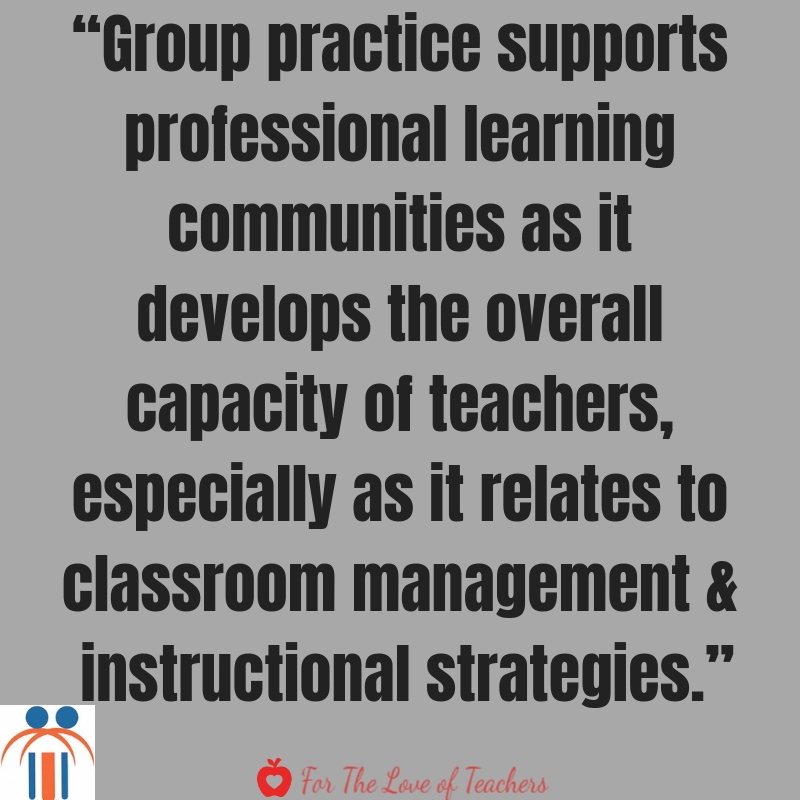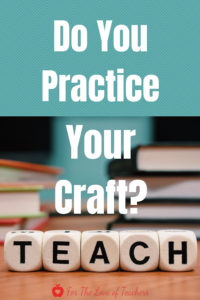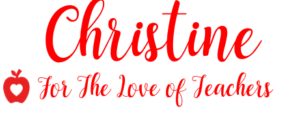I’ve had countless conversations with students, and in some cases have given lectures, about how practice makes “better,” not perfect. This is true for anything and everything from math facts to reading fluency, to writing, and so on. To make this concept of “practice makes better” really hit home with my students, we’d talk about the extra-curricular activities that they participate in and enjoy, from playing a sport or an instrument, riding a bike, or a hobby or interest that they are passionate about.
It sounds like this:
Me: “Hey Jacob, you’re really good at baseball, right!?”
Jacob: “Yeah.”
Me: “How are you so good at baseball?”
Jacob: “Because I love the sport and go to practice.”
Me: “Do you ever miss a practice?”
Jacob: “Nope, not if I can help it.”
I’d go around the classroom pointing out my students’ passions and talents. “Ellen, you’re an amazing swimmer because you never skip practice and compete regularly. Emmett, you’re a gifted writer because you observe and write with such detail. Chris, you’re a talented violinist because you practice independently daily and with your music teacher weekly.” No matter how talented one is, it’s the practice, hard work, and dedication that allow one to truly master their craft. This kind of practice is also applied to the classroom. My students knew that if they wanted to improve their math fluency, they had to practice their math facts; if they wanted to become a fluent reader, they had to read daily.
Now let’s relate this to teaching. One thing I know about teaching is that years of studying to receive a Bachelors’s and Masters’s degree in education couldn’t prepare me enough to deal with the challenges I’d face in the classroom, from instructional planning and design, classroom management, parent communication, building students relationships and so on. It comes down to practice and all the experiences from year to year, the successes and failures I faced in the trenches have taught me what I needed to be a successful educator. And it doesn’t stop there. It never stops. I’m still learning on this journey with an understanding that I, as well as all teachers, must practice their craft. Since education, technology, and today’s students are evolving at an even faster pace, many teachers are barely keeping up on the mouse wheel with planning and executing lessons with the proper tools and resources to engage today’s students and prepare them for the future.
Thoughtful Teacher, a classroom management model designed to transform the way teachers manage their students suggests three ways for teachers to practice their lessons.
Mental Repetitions
After planning lessons, it’s suggested that teachers rehearse (in their mind) their lesson plan dozens of times prior to delivering the lesson to students. As you rehearse, think about what didn’t go as planned and consider alternative strategies to be prepared for the unexpected. What do you do if your lesson calls for technology, like a smartboard or projector, but is not working? What happens if you need to make copies for each student but do not have access to a copier because it’s jammed and out of order (as usual!). Rehearsing allows you to plan for the unexpected and to think of a backup plan before it’s showtime. There will be fewer obstacles in your way that you had not anticipated.
Individual Practice
Practice your lesson before delivering, kind of like a one-sided role play. Practice giving instruction and anticipating any disruptions that may occur. Role-play what you would do when that same kid disrupts your lesson Every. Single. Day. Practice the eye content, proximity to the student, your voice, and most of all the “look.” Practicing in the mirror is a good idea too. It’s good to see for yourself how your authoritative facial expressions look to others. The big idea behind individual practice is to be able to respond to problems and still be able to deliver your killer instruction without skipping a beat.
Group Practice

Thoughtful Teacher suggests having 3-5 teachers role play as teachers and students pretending to be in a classroom setting. Create scenarios where you could practice your best instructional strategies while encountering classroom management challenges, like a student acting out, a student not feeling well, a student not understanding the content, or peers unable to work together. After role-playing, teachers give feedback to each other. Receiving feedback from your peers helps you not only gain insight and perspective about how you handle certain classroom management obstacles as they arise, but provides an opportunity for growth and reflection.
(Thoughtful Teacher: 10 Steps To Effective Classroom Management p. 22-23)
Ways to Improve Your Craft
Self-Directed Professional Development
Take charge of what you want to learn and how you want to learn it. Hone in on some skills that may need improving or you think may need a makeover. Are your tech skills non-existent or lacking? How about taking the Google Educator self-paced course and becoming certified? Do you groan at the idea of teaching writing? I got you covered with my Writer’s Workshop Boot Camp. Perhaps you like to learn with others. There are conferences like Get Your Teach On and Teach Your Heart Out, which are so much fun and are sure to inspire you. Don’t want to foot the bill? There are many free PD workshops given by teachers online or perhaps you can get a PD reimbursement from your school or district that you think will benefit your school and colleagues as well. Don’t forgo any PD that can make you a more effective educator. The more you know and are up to date with the latest in education, the less stressed you’ll be in the classroom.
Read a Book or Two (or Three)
Like many teachers who have a natural yearning for learning and growth, I took my professional development into my own hands. I wanted more than one and done workshops to help me grow as an educator. Because I am an avid reader, I began taking note of all of the trending books on social media for educators that are relevant to today’s schools, students, and teachers. I couldn’t wait to start reading them and practically devoured them one by one, making meaningful connections to what I already do well as an educator and making notes of what I could do better. This fuel excited and inspired me and has been the key to my own professional development. Check out this post, 5 Inspiring Reads For Professional Growth here to get some excellent book recommendations to get you started.
Other Related Post: 7 Books That Will Change The Way You Teach Literacy
Get Social
Anyone who knows me knows that I am not a fan of using social media for personal use but when using social media to connect with amazing educators, talk about my favorite topics in education, learn something new, and get fresh ideas, count me in! In fact, connecting with others on social media has been a complete game changer. I’ve found it to be a powerful tool to grow my professional learning network and help me grow as an educator in many ways. Read more about how to get more “social” on social media to improve your craft in this post, Social Media: A Game Changer For Educators.
So, whether you are in need of more practice or improving your craft, remember that we are lifelong learners on this everchanging rollercoaster in education. It’s going to take hard work, dedication, practice, and lots of patience to master the craft of teaching. Since teaching is the profession that teaches all other professions, teachers are kind of a big deal, don’t ya think?! 😉 I do!
If you think that Thoughtful Teacher is for you because you need or want support in classroom management then reach out to your admin about the benefits of Thoughtful Teacher. Don’t be afraid to ask for support or to educate them! For more information visit www.thoughtfulteacher.org. If you have any questions, you can contact info@thoughtfulteacher.org.
Be sure to visit the Shop for classroom management resources and don’t forget to join the email list to receive the latest and greatest updates, plus some awesome freebies!!
If you like it, then pin it!



Christine Weis is a passionate educator, classroom management coach, wife, and mom of two busy boys. She enjoys teaching, writing, and creating resources for teachers.




Yes, I think teaching is such a great profession. I could only be a teacher on a small scale, I think! Or a substitute teacher for a short time 🤣
Ha! It’s a tough job! Thanks for reading!
Christine at For The Love of Teachers
Agree: it’s the practice, hard work, and dedication that allows one to truly master their craft. You have put it across to the students so well.
Exactly! It takes that drive and personal commitment to master just about anything. Thanks for reading!
Christine at For The Love of Teachers
So many good points! If we’re going to do something, we should do it right and with our heart. Thanks!
Hannah Rooks | therookiewife.com
Thank you and YES…Doing what you love with ‘passion and purpose’ is my motto! Thanks for reading!
Christine at For The Love of Teachers
Really great post. I agree that you should learn more about what you do, no matter how long you have been doing it. You can always learn something new.
Thank you! I think as we continue working on our craft we should be continually open to learning and growing to master it. Thanks for reading!
Christine at For The Love of Teachers
What a great post! This can be applied to pretty much anything. But teachers who are practicing what they preach will definitely make better teachers!
-Jennifer
https://maunelegacy.com
Thanks! I completely agree! The best teachers are the ones that continually practice and grow professionally. Thanks for reading!
Christine at For The Love of Teachers